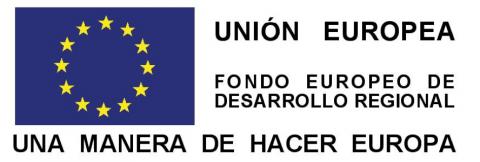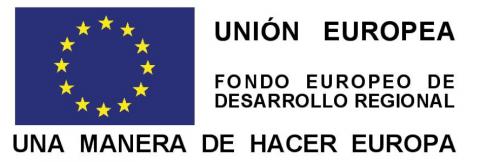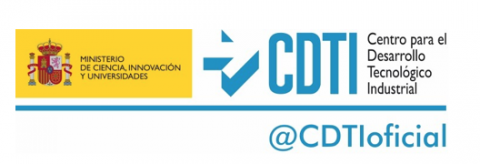FEDER

Conecta-PEME 2018 Project: Application of Emerging Technologies for Tuna Processing (MELLORATUN)
The consortium formed by TEINCO, S.L., HERMASA CANNING TECHNOLOGY, S.A. and TECINGAL NOROESTE, S.L. developed the project entitled: "MELLORATÚN: Application of Emerging Technologies for Tuna Processing". It should be noted that this project was also subcontracted to the technology centers ANFACO-CECOPESCA and ENERGYLAB.
The main objective of the project was the optimization of a canned tuna processing line through the application of new innovative technologies not implemented in conventional tuna processing lines.
These actions are focused on several critical aspects of the process, such as accelerating the thawing process, optimizing packaging, increasing productivity and improving the quality and safety of the finished product.
The results of the project at each stage of the process are presented below. Thus, following the natural evolution of the process, in the thawing stage, TECINGAL obtained:
1. An equipment adapted to the industrial needs of the defrosting process, with an operative user interface or HMI, with different defrosting recipes and screens that allow both configuring and monitoring the defrosting process.
2. A control of an ultrasonic thawing system in an industrial environment, with the necessary safety measures for its correct use.
3. The optimization of the thawing of the MMPP in a uniform and homogeneous way on each processed batch, respecting the nutritional, microbiological and sensory integrity of the same.
Regarding the cooking process, TEINCO achieved an optimization of the cooking process for a sensory improvement of the final product through the design, development and implementation of an accelerated cooling system, after steam cooking, based on cryogenic refrigerants.
Specifically, the results obtained are indicated below:
1. Prototype system that combines different cooling systems, but especially oriented to the use of a cryogenic system that reduces the cooling times after the thermal cooking process and minimizes the product losses as well as the consumption of water resources derived from the traditional cooling process with the new developed system and improve the sensory and biochemical integrity of the cooked product, minimizing the auto-oxidation processes and other risks.
2. Mathematical model of the tuna cooking process, which serves to deepen the knowledge of the simulation of food thermal processes and allows seeking optimizations in the design of TEINCO's cooking equipment and its control equipment.
3. Prototype of a system for real-time measurement of product moisture.
Next, regarding the packaging process, HERMASA obtained the following results:
4. Development of a vertical packing machine applicable to tuna and other food products, both for cans and glass jars.
5. Application of artificial vision to the control of the packing and the feedback of the information obtained to regulate the packing machine.
6. Application of profilometry to packing control and the feedback of the information obtained to regulate the packing machine.
7. Monitoring of the packing process.
8. Development of a useful, easy, comfortable and "user-friendly" HMI interface.
Finally, regarding the activity related to STERILIZATION, TEINCO's work was based on the improvement of the sterilization process through the development and implementation of a nitrogen (gas) overpressure system. For its application, a regulation system was developed to reduce the percentage of oxygen inside the autoclave, being able to sterilize the containers in concentrations of this gas between 20.9% and 1%.
In addition, BPA-free containers were studied, comparing them with traditional varnishes, and in addition to the traditional control methods, the measurement of the thickness of the varnish was tested to evaluate the relationship between performance and thickness. From the results obtained, it can be seen that the new varnishes behaved adequately in the tests to which they were subjected, and with regard to external micro-oxidation, it became clear that although oxygen during sterilization accelerates the oxidation process, proper handling of the container is crucial to have a good performance of the container against oxidation.
In addition, the sterilization tests showed that by adjusting the sterilization values and comparing the results of the raw material processed in the traditional way versus the one processed in the MELLORATÚN project, a product is obtained that is better valued by the tasting panel and, at the same time, allows a better use of the raw material.
Finally, the mathematical modeling of the sterilization process carried out in this project served to deepen the knowledge of the simulation of food thermal processes and to search for optimizations in the design of TEINCO's sterilization equipment and its control equipment.
Additionally, a software tool was developed for the entire project, which allows monitoring processes, implementing IoT and anticipating machine failure (Predictive Maintenance). This allows the interconnection between the different systems of the plant, an aspect that is currently far from the reality of the tuna processing industry.
This project has been co-financed by the ERDF Galicia 2014-2020, Axis 1, Priority 1.2 and Specific Objective 1.2.1, with file number IN852A 2018/42. The global aid granted corresponds to 603,915.10 €, and was developed until December 31, 2020.
The Galician Innovation Agency, through the RESOLUTION of November 27, 2017 awarding the grants for improving the innovation capacity of companies in Galicia (Innova Peme Program), through the financing of activities integrated in innovation plans framed in strategic priorities of the RIS3, co-financed by the European Regional Development Fund (Feder) in the framework of the operational program Feder Galicia 2014-2020, convened by the Resolution of this Agency of July 12, 2017, has granted TEINCO S.L. an aid for the financing of expenses for the implementation of its Innovation Plan.
For TEINCO, the strategic objective of the implementation of this Innovation Plan is based on the increase of knowledge as a way to improve the innovation capacity of the company, focused on the consolidation in the American market.
This innovation plan is based on three main axes:
1. Systematization of innovation activities. TEINCO has been carrying out its daily activities by innovating continuously, so that the improvement of products and services has become evident. The evolution of the company's activity has made it necessary to structure and formalize both the management and implementation of R&D activities.
2. Process innovation. The development of this line will be aimed at improving production processes in the food sector.
3. Organizational innovation. Finally, the third pillar of TEINCO's Integral Innovation Plan is organizational innovation.
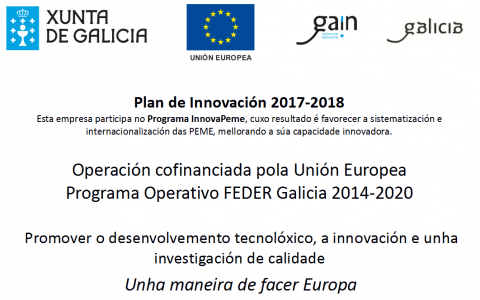
Plan Integral de Innovación
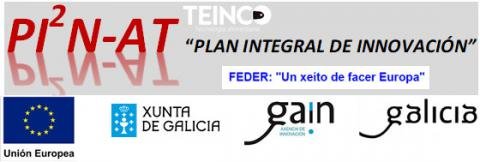
In the words of David Brunet, the company's managing director:
"The granting of this aid has an incentive effect on the fulfillment of the improvement objectives set by the company, thus allowing it to optimize its capacity for innovation by undertaking these activities with a higher degree of intensity than would be the case if this aid were not available. At the same time, this support from the Administration is a recognition and an extra motivation to TEINCO's team for the good work they have been doing in recent years, thus indicating the consolidation of solid pillars, which will allow TEINCO to achieve the proposed objectives in the short, medium and long term.”
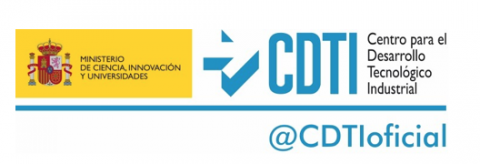
ALISEG - Increasing food safety in national and international markets through the development of new technologies and sustainable and innovative processes.
TEINCO S.L. participates in the project "ALISEG - Increasing food safety in national and international markets through the development of new technologies and sustainable and innovative processes", developed in the Autonomous Community of Galicia between 02/07/2015 and 31/03/2018, with a granted budget of 1.418.654 €, and whose main objective is to ensure food safety through research, innovation and development of new products and processes, advancing in the conservation of natural resources and reducing the energy needs of meat transformation processes.
This FEDER Innterconecta 2015 Pluri-Regional project has been subsidized by the Center for Industrial Technological Development (CDTI) with the support of the Ministry of Science, Innovation and Universities, and co-financed by the European Regional Development Fund (ERDF), within the Operational Program for Smart Growth ERDF 2014-2020.
Integral Improvement of the Mussel Transformation Process - MUSSELTOP
Teinco participates in the project Integral improvement of the Mussel transformation process co-financed by the European Regional Development Fund (ERDF), through the "Smart Growth Operational Program 2014-2020" and the Ministry of Economy and Competitiveness, through the Center for Industrial Technological Development (CDTI), under the Order ECC/1780/2013, of September 30, which approves the regulatory bases for the granting of public aid from the State Program for Research, Development and Innovation Oriented to the Challenges of Society, within the framework of the State Plan for Scientific and Technical Research and Innovation 2013-2016, as amended by Order ECC/2483/2014, of December 23.
The MUSSELTOP Project (INTEGRAL IMPROVEMENT OF THE MUSSELTOP PROCESS), in which Teinco has participated together with Luis Calvo Sanz, Calvo Conservas, Mejillones Nidal, Inpromar and Imatia Innovation, funded by the CDTI, through the FEDER Innterconecta call of 2015, aimed at promoting regional cooperation in research and development.
The consortium of companies has had the collaboration of the ANFACO-CECOPESCA and AINIA technology centers, and the University of Vigo.
The main objective of the project focused on developing a real-time management and integral improvement of the mussel transformation process, from raw material to sterilized product, thanks to the application of sensor-based technologies and other emerging technologies for this sector, both in the selection of raw material and its implementation in intelligent cooking and sterilization systems, integrated in a 4.0 platform for decision making.
The project concluded satisfactorily with the development of a prototype of vianda selection by artificial vision, with a high success rate, discriminating foreign bodies and mussel sizes or appearance not suitable to the quality standards of the Canning Industry. A prototype of an intelligent cooker has also been developed, with an improvement in heat distribution to uniform the appearance and quality of the mussels. Likewise, at the sterilization level, the creation of a system to improve heat distribution, as well as its registration, favors an improvement and shortening of heat treatments, reducing costs and improving the quality of the product, without skimping on the food safety of the product. All this, taking into account the origins of mussel cultivation, according to environmental variables, and its yields according to size and time of year, the predictive model in real time will indicate the most appropriate heat treatments for the following stages of production, thus improving its yield and sensory quality.


